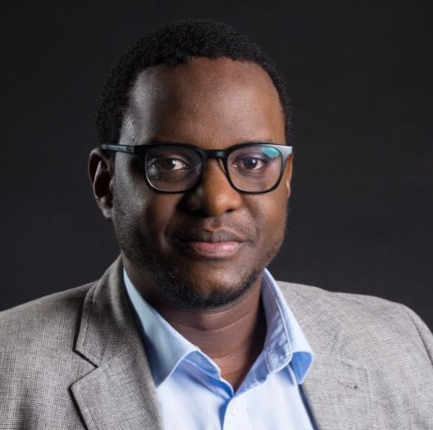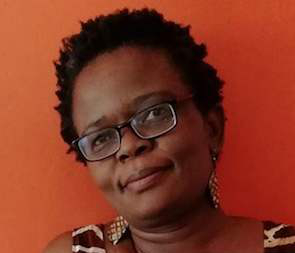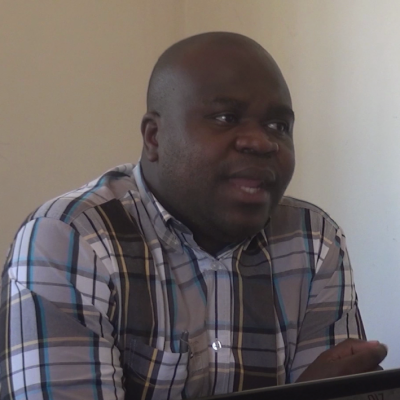Chris Maroleng
On the eve of election day in Zambia in August Dr Grieve Chelwa Director of Research, Institute on Race, Power and Political Economy, The New School, hardly slept in anticipation of the historic day that was to follow, such was the excitement among Zambians itching for change following many years under the tight grip of Edgar Lungu.
“Anyone who has followed Zambia’s recent political history story over the last 10 years or so, appreciates the significance of what took place a little over 90 days ago, on 4 August 2021. For many, that day’s election was a battle for the very soul of the country. In scenes that hadn’t been witnessed in quite some time, thousands got up in the early hours of the morning to go and line up and cast their vote,” said Chelwa. He was speaking at a webinar hosted by the Mail & Guardian in partnership with the Good Governance Africa (GGA) that reflected on the first 100 days in office of Zambian president Hakainde Hichilema, known popularly as HH.
 Dr Grieve Chelwa
Dr Grieve Chelwa“I was overtaken by an immense sense of pride queuing up with my brothers and sisters and fighting for the future of our country. The sacred meaning of what we were doing that morning wasn’t lost on me, which is that power ultimately belongs to the people. And that’s what was demonstrated on that day,” said Chelwa.
It is now common knowledge that Hichilema won the election by a landslide, beating incumbent Lungu by more than a million votes to ascend to the presidency. Now Zambians are grappling with getting the country back onto a sound economic footing.
Three months after Hichilema’s historic win, Zambian political and social commentators Laura Miti, executive director of the Alliance for Community Action, Boniface Cheembe, executive director of the Southern African Centre for the Constructive Resolution of Disputes (Saccord) and Chelwa joined GGA executive director Chris Maroleng to reflect on what has happened since Hichilema took the helm.
Maroleng noted that assuming the role of president is daunting, even for the most accomplished of individuals who attain this position, especially in a country beset by internal challenges.
Chelwa reasoned that Hichilema had made some good appointments in the key economic portfolios since his appointment. But he decried that he had not organised a national indaba where key stakeholders could get together to discuss the country’s challenges — especially its huge debt — and map a way forward.
“The first 100 days are very important. And this is an opportunity for a president to announce some seismic economic policy shifts, but sadly, that seems to not have happened. For example, the one concern I have is that we don’t yet have a very solid economic recovery plan. We all know that the HH administration inherited an anaemic economy, saddled with much debt and lacklustre economic performance. I think that’s not without debate. One of the first things that we expected to see was a formulation of a robust and reasonably homegrown economic recovery plan,” Chelwa said.
In a Facebook post in November, Hichilema announced the swearing in of several government officials including a high court judge, commissioner of lands and permanent secretaries for various ministries.
Hichilema told the judge that Zambians expect justice in real time, because justice delayed is justice denied. He further stated: “Land belongs to Zambians first and that joint ventures with others and for purposes of development are welcome. No thug or cadres should walk into someone’s piece of land and start sharing it amongst themselves; we detest that, and we won’t allow it.”
 Laura Miti
Laura MitiHichilema said permanent secretaries had been warned never to do what their predecessors in the previous regime used to do: that is, issuing payment instructions, including awarding of dubious contracts for goods and services that were never meant to be delivered. “Anyone hoping to carry on with such, will surely not appreciate our approach to service delivery, because you, the voters out there, expect results.” Hichilema had added that they were optimistic about turning around the country’s economy and delivering jobs and business opportunities.
Chelwa further raised concerns about the austerity measures announced by Hichilema, and the decision to consider the International Monetary Fund (IMF) as a crucial partner in revamping the Zambian economy.
In September Hichilema met with IMF and World Bank representatives in Washington. He later told journalists that Zambia would seek to slash spending, especially on the cost of running the government, to show creditors it was serious about getting on top of its debt. He said part of the reason for meeting the two institutions was to restore credibility around debt with the lenders. Zambia’s foreign debt is estimated at $14.3-billion.
“When you remove those subsidies on energy and electricity, the prices will go up. When the prices go up suddenly it’s going to cause pain. I think the question is, will that pain be temporary? And then will we see recovery in the future? My reading of the evidence suggests that austerity depresses the economy. And it almost becomes a vicious cycle. And I think the evidence is quite clear that this kind of policy approach doesn’t create jobs, it causes pain, so I worry about that,” said Chelwa.
“Are we going to trade off or reduce subsidies, and then give the corporate sector some tax relief? These are things that we should have debated in any economic endeavour in any sort of place,” he said.
Miti then warned that perhaps judging a president’s performance over such a short period wasn’t ideal.
She however highlighted some positive changes with regards to freedom of speech in the past three months. She said previously there was a degree of fear and self-censorship within the media.
 Boniface Cheembe
Boniface Cheembe“Anybody critiquing the government, if it was a bad comment, was seen as brave. And I think that level of political tension has reduced quite critically. And I think also linked to that is the ability of Zambians to express themselves. So what we’ve seen since August, is almost noise. Anybody who can say anything, whether they have something to say or not, is just talking,” said Miti.
“I think what is most noticeable is the extent to which the now opposition party, the Patriotic Front, is able to express itself and criticise the government quite robustly and go from radio station to radio station, TV station to TV station, and hold press conferences … this was entirely impossible before, so that I think is a good change, which we hope can be sustained,” she said.
Maroleng posed a question regarding reports on the immunity to prosecution of former heads of state being lifted, and what its impact would be on the Zambian political landscape.
Cheembe said this is a big question in the country, especially given its history. He cited the example of former president Frederick Chiluba whose immunity was lifted, and “he was prosecuted for what were perceived or deemed to be corrupt practices while he was in office”.
“The trial did drag on for long and if you ask many Zambians today whether they are satisfied with what that particular trial brought out, many will tell you that, well, it leaves much to be desired,” said Cheembe.
“Perhaps it wasn’t even worth it. To have gone down that path. But the whole idea was to ensure that we do away with corruption and send out a very clear message that if you do engage yourself in acts of corruption, you will be brought to book,” he said about the case of another former president, Rupiah Banda.
“There were some actions taken against him. And again, if you asked Zambians as to whether they are happy with the outcome of that particular trial, you would probably get some mixed feelings in that regard; not much was recovered, as compared to what Zambians thought would actually be recovered. So, on account of the happenings to our former presidents, we need to ensure that it is not used as a loose political weapon to be waged against perceived opponents,” he said.
Maroleng said one of the key things that the GGA will be looking out for is whether the promises that were made in the run-up to the elections will actually be fulfilled. He said these included promises of inclusion, peacebuilding, unity, economic development, and promises of greater social cohesion.
“I think what is quite apparent is that president Hichilema came into office with the trust, the hopes, and indeed the future aspirations of the Zambian electorate, behind him and backing him. Let’s hope focusing on Zambia will result in the fulfilment of these hopes and aspirations of the people of Zambia,” he said. — Lucas Ledwaba